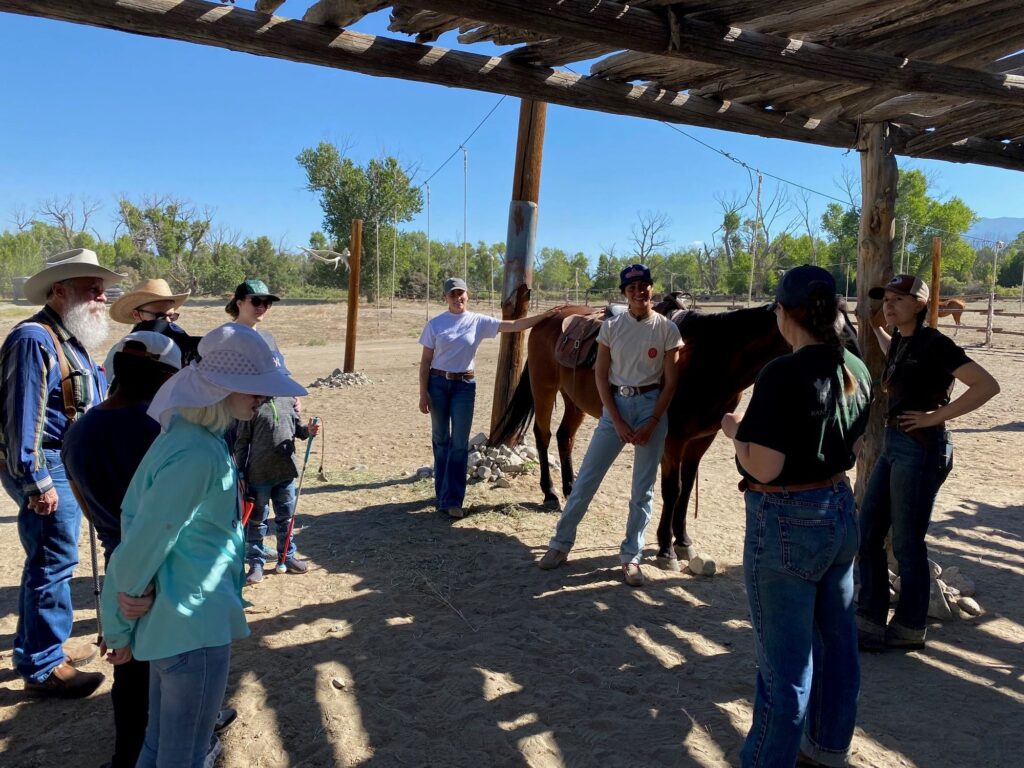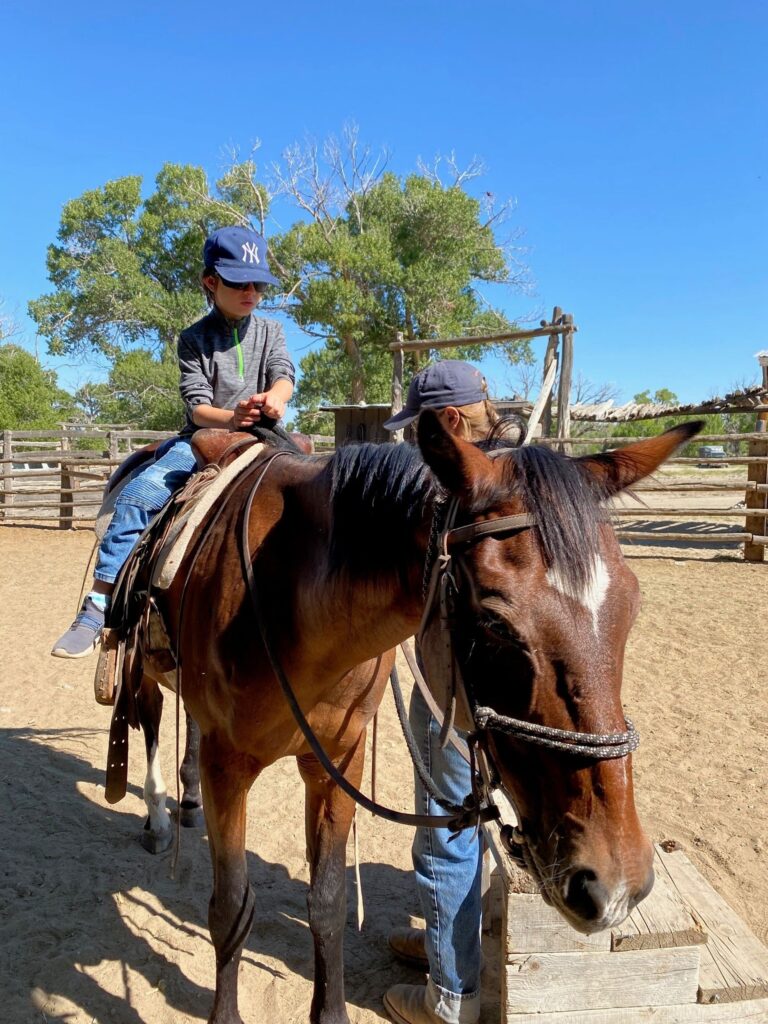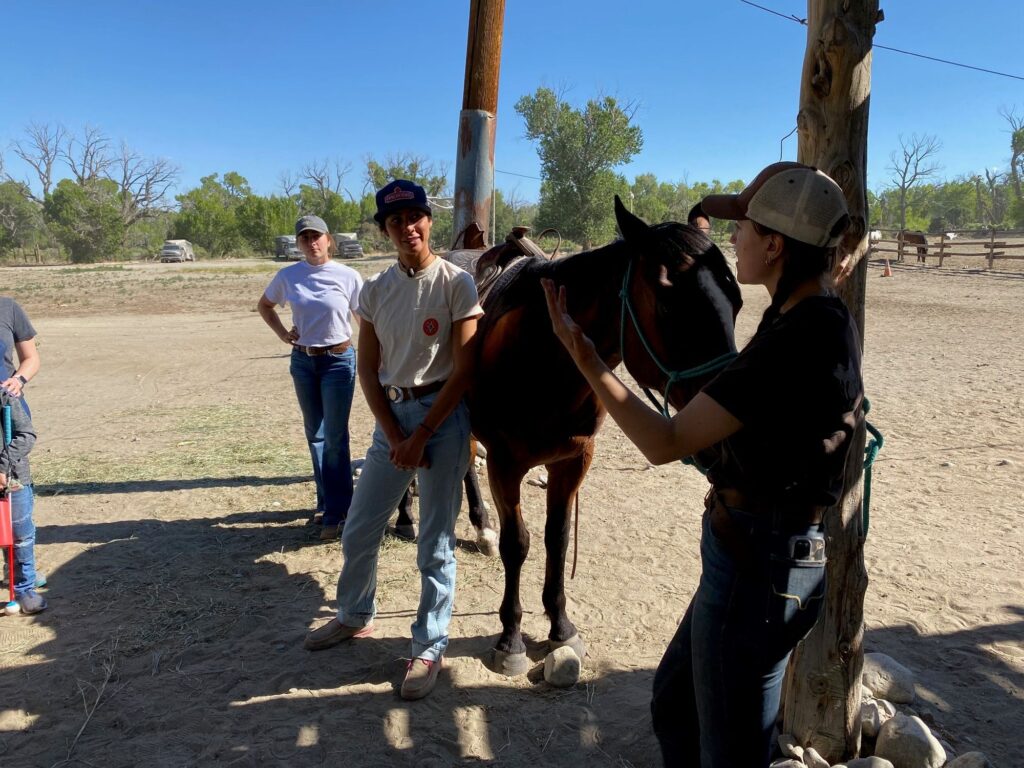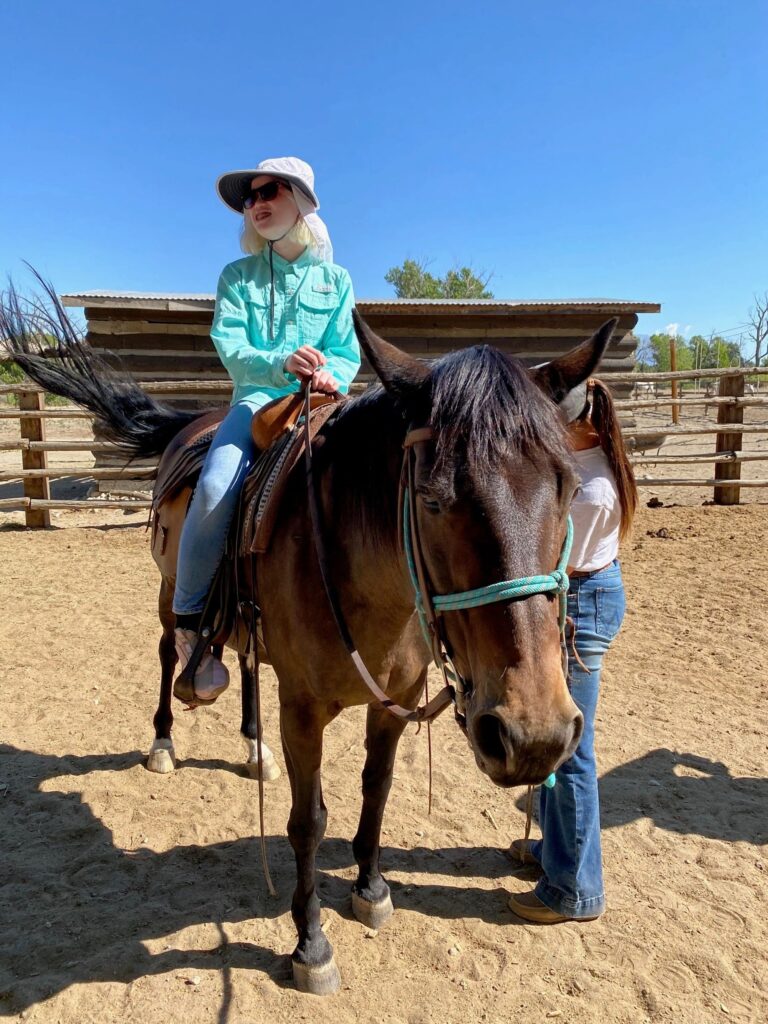Four blind and visually impaired children spent a weekend in Colorado learning the basics of horsemanship.

Horsemanship involves more than just getting on a horse and riding around a trail. It is not only a skill, but an art that must be learned and practiced. Many of the same qualities necessary in building relationships with people apply to having connection with a horse: communication, compassion and leadership, to name a few.
There are hundreds of camps and programs that offer training in the care of horses, but many are not designed to teach blind and visually impaired individuals.
For the past year, the Foreseeable Future Foundation has made an effort to change that by hosting a series of camps for blind and low-vision children. While these camps offer only a glimpse of horsemanship skills, it’s a great opportunity for kids to have a basic understanding of how to care for and bond with a horse.
One such camp took place over the weekend of July 14-16 at Zapata Falls Campground near Blanca, Colorado. The campground is just a short drive from San Luis Valley and Great Sand Dunes & Reserve National Park. It was named after Zapata Falls, which is about a half-mile hike away.
When Foreseeable Future CEO Griffin Pinkow began looking for someone to oversee the ranch camp, he asked Christine Holmberg if she would be interested. Holmberg, executive director of Foresight Ski Guides, eagerly agreed.
The organization, which recently changed its name to Foresight Adventure Guides for the Blind, hosts two summer camps along with its ski camps during the winter. Foresight had previously been awarded a grant from Foreseeable Future, so a relationship had already been established.
Holmberg had initially wanted to hold Foresight’s camps at Zapata Falls this past summer. The problem, however, was the campground was several hours’ distance, so both camps were held at Camp Hail in the Vail Valley instead.
When Pinkow asked about the possibility of Holmberg overseeing the ranch camp at Zapata Falls, she jumped at the chance.
“It made perfect sense for me to do it,” explained Holmberg, who served as Foresight’s program manager before taking over as executive director. “(Griffin) and I had been talking about joining forces anyway, so that’s how it came about.”
Four blind and visually impaired children ranging in age from 9 to 16 attended the camp along with parents and family. Holmberg provided the wranglers from Camp Zapata training on how to teach blind students prior to the camp.

“The wranglers were all women, which I thought was very interesting. They were wonderful. They asked me for advice, so I just said to be as descriptive as possible.”
Holmberg described the camp’s quarters as more of a bed-and-breakfast style as opposed to cabins. After being checked in and shown to their rooms Friday evening, campers were treated to dinner, with most of the food homegrown from the ranch at Zapata Falls. Everyone then retired to their rooms for a good night’s sleep before the activities the next day.
Following breakfast on Saturday, the kids were taken to the stables to meet their horses. They spent the morning getting acquainted with the mounts and walking them around an arena. Once they were comfortable, the wranglers took them on an hour-long trail ride. Campers then brushed the horses and learned the basics of horsemanship before heading back.
A two-hour break allowed everyone the chance to have lunch and go on a hike to the waterfall if they wished. The ground was rocky and somewhat slippery, but everyone enjoyed the outing.
In the afternoon, the kids were given strips of leather to hammer out different shapes and bore holes to make ornaments and other objects. Some of the campers then took part in a roping lesson before dinner.
The evening was spent around a bonfire where campers talked, laughed and made s’mores before turning in for the night. The camp concluded after breakfast Sunday morning.
The small number of participants allowed for individualized instruction. Three of the four children had previously attended Foresight’s summer camps, so they had some prior experience with horseback riding. Everyone enjoyed the Foreseeable Future camp so much, they were reluctant to leave.

“It was a short camp, it was one day. (The kids) were like, ‘no, I don’t wanna go. I wanna stay’.”
Watching how the kids interacted with the horses was especially gratifying for Holmberg.
“There was this warmth. They were hugging the horses, petting them, they loved that. They just loved feeling like kids. It gets them out of their daily routine and exposes them to something different.”
Holmberg hopes more blind children will have the opportunity to participate in similar camps in the future, whether it’s horsemanship or other related activities.
“I think it’s important for them. I want to believe more and more kids are being exposed to these opportunities. In Colorado, there are lots of opportunities for kids. But I don’t think it’s the same elsewhere.”

